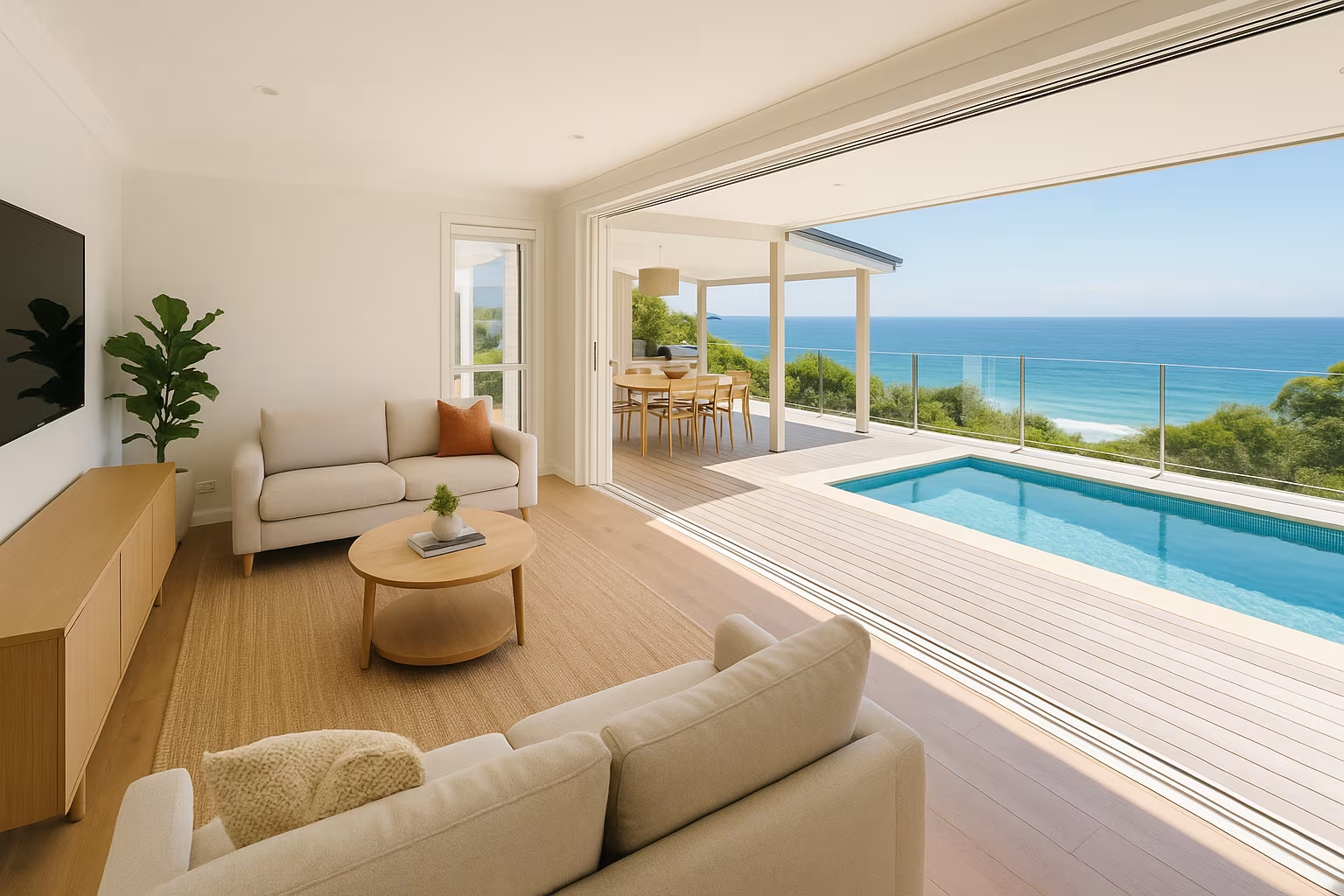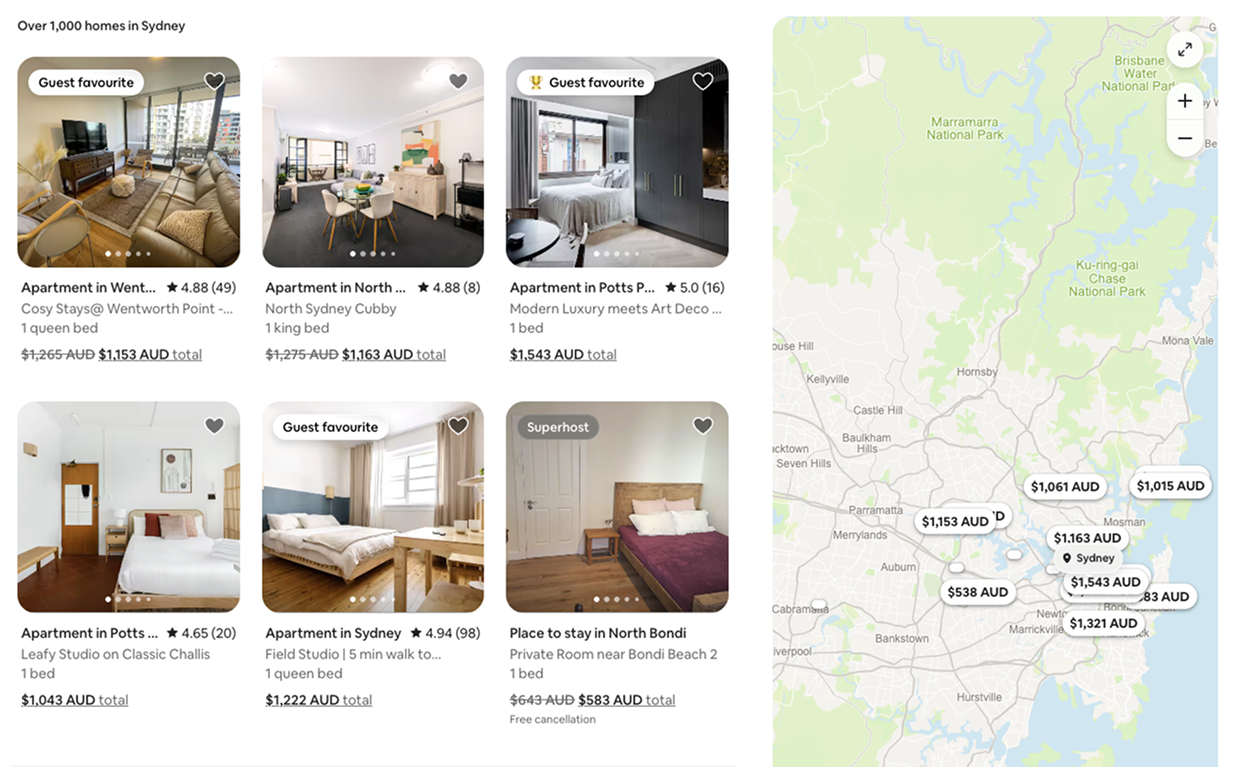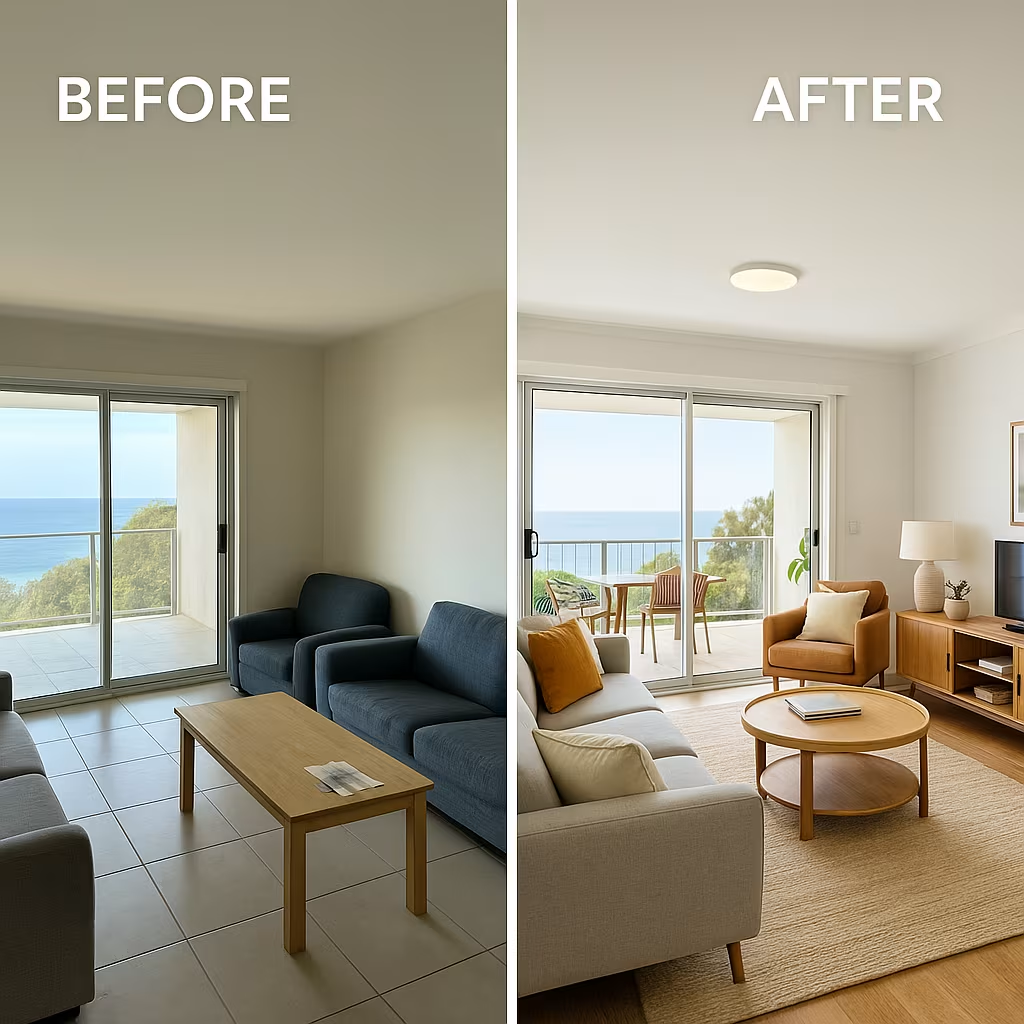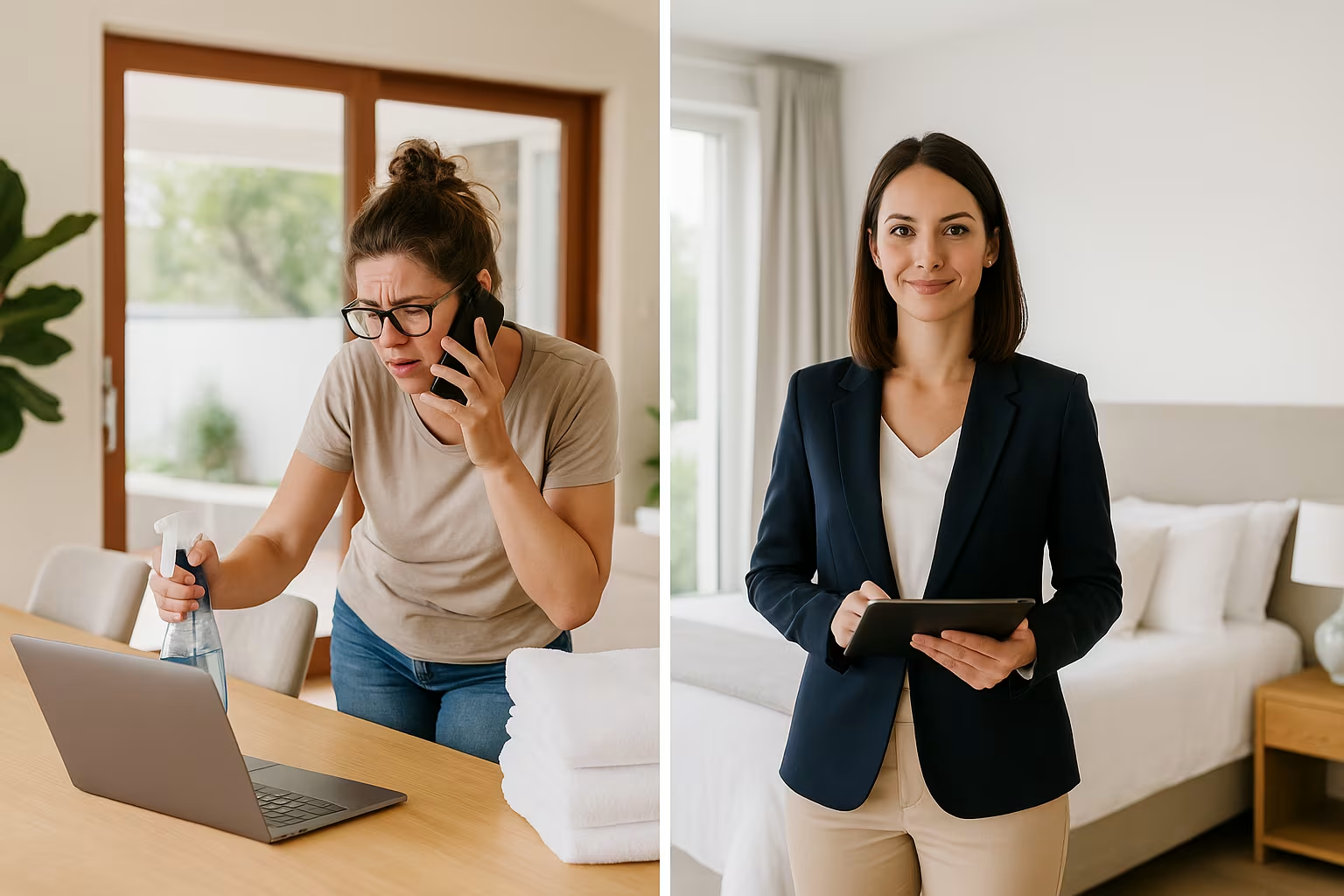Airbnb SEO: How to Rank Higher and Attract More Bookings

A top spot on Airbnb isn’t won with keywords—it’s earned by signals that prove your place gets clicked, chosen and reviewed well. In Australia, there’s another layer: compliance and “total price” transparency. If you want more enquiries and better occupancy without racing to the bottom on price, focus on the handful of levers that the algorithm—and guests—care about most: standout visuals, scannable listings, competitive all‑in pricing and operational discipline.
Below is a practical playbook you can action in a week, aligned to how Airbnb ranks listings and how Australians actually search, book and travel.

Airbnb SEO in Australia: what actually moves you up in search (CTR, conversion, reviews, price competitiveness)
Airbnb prioritises listings most likely to be booked. The platform looks at guest interactions (clicks, saves, enquiries, bookings), review quality and recency, price competitiveness versus similar nearby properties, calendar availability and host reliability (fast responses, minimal cancellations). Improving your cover photo and title to lift click‑through, keeping your total price competitive and converting consistently are the fastest ways to climb.
Compliance is a visibility factor in Australia. In NSW, you must register your STRA property and display the ID on your listing; platforms can block bookings or remove non‑compliant listings, and local caps (e.g., most of Byron Shire) apply. With Airbnb now showing “total price” upfront, guests compare price‑with‑fees across options. Trust badges like Superhost or Guest Favourites (typically 4.9+ rating with multiple reviews and low issues) boost clicks and conversion—both rewarded by the algorithm.
Photography and styling that win the click (cover photo, gallery order, Australian lifestyle cues)
Lead with a bright, horizontal cover photo of your most bookable feature—ocean view, pool, alfresco, skyline—then complete Airbnb’s Photo Tour so guests can scan room‑by‑room. Ordering your gallery to match decision‑making (hero space first, then living, kitchen, primary bedroom, secondary beds, bathrooms, work area, outdoor) increases scannability and click‑through, which improves your quality signals.
Season matters. Coastal markets like the Gold Coast, Sunshine Coast and Byron Bay see peak demand in December–January (AirDNA), so feature outdoor lifestyle cues early: beach proximity, pool shots, BBQs and shaded alfresco zones. If you have a pool, photograph the compliant safety barrier and a clutter‑free area. State laws require residential pool barriers (with registration/compliance in NSW and QLD), and showing a safe, family‑ready setup builds trust and earns more summer clicks.

Titles, descriptions and amenities that convert (write to filters and scannability, not fluff)
Write clear, factual titles that front‑load the features people filter for, plus location. Examples: “Pool + A/C, Parking – Bondi 2BR” or “Pet‑friendly, Workspace, Walk to CBD – 1BR”. Airbnb’s search is filter‑led and results cards highlight key amenities, so titles that surface “Pool”, “Air conditioning”, “Parking” or “Pet‑friendly” perform better on mobile.
Use the first 2–3 lines of your description to answer decision‑makers: exact bed sizes, NBN Wi‑Fi speed (use Airbnb’s speed test), parking type (garage/on‑street), self check‑in, and walk/drive times to the beach, CBD or stations. Tick every accurate amenity to appear in more searches. In Australia, safety items are expected and regulated—smoke alarms are mandatory in NSW and QLD. Market data shows pet‑friendly, pool and dedicated workspace amenities correlate with higher occupancy and ADR in coastal and city markets; offer them where true and include clear rules (e.g., pets, EV charging).
Also, don't forget classic SEO best practice for images in your listings, load time, alt text and filenames all contribute to higher quality listings. You could use a product like OPT-IMG which covers all of these.
Pricing to rank: dynamic rates, transparent fees and minimum stays tuned to Australian seasonality
Airbnb surfaces competitive total prices—nightly rate plus fees—so keep fee structures simple and transparent. Use early‑bird, last‑minute and weekly/monthly discounts to improve click‑through and conversion without permanently cutting base rates. Dynamic pricing that moves with demand will protect both rank and revenue.
Match rates and minimum stays to Australian demand cycles. Raise ADRs and lengthen minimums for high‑value dates like the Dec–Jan school holidays, Easter and major events (Australian Open in Melbourne, Vivid Sydney), then ease to 1–2‑night stays and sharper midweek pricing in winter to keep occupancy up. If you’re non‑hosted in NSW, factor in the 180‑night cap in Greater Sydney and the 60‑night cap across most of Byron Shire (from September 2024); concentrate limited nights in peak periods rather than burning them in shoulder weeks.
Operational settings that boost trust and rank: Instant Book, <5 min response, zero host cancellations, Superhost
Turn on Instant Book. Airbnb favours low‑friction booking, many guests filter for it, and it’s a competitive must in Sydney, Melbourne and the Gold Coast. Keep your calendar rules tight and your house manual clear to stay comfortable with instant reservations.
Aim for sub‑5‑minute responses and a ≥90% response rate. These metrics are guest‑visible and contribute to Superhost. Avoid host‑initiated cancellations—penalties hurt both rank and revenue. Superhost status (4.8+ rating, ≥90% responses, <1% cancellations) is often used as a filter and lifts trust, conversion and your placement.
Calendar discipline and compliance: open 6–12 months, fix orphan gaps, meet NSW/State STR rules
Open your calendar 6–12 months ahead. In Australian holiday markets, lead times commonly exceed 60 days, and school holidays or major events book 3–6 months out (AirDNA). Early availability lets you appear in more searches and capture premium dates before competitors.
Use stay rules and targeted discounts to mop up orphan gaps—temporarily allow 1–2‑night stays where a gap exists and apply a modest gap‑filler or last‑minute discount. Active, accurate calendars with strong acceptance and competitive pricing convert better, which in turn improves ranking. In NSW, ensure STRA registration is valid and displayed; platforms enforce registration and local caps, and unregistered or over‑cap listings face calendar blocks and penalties.
Talk to a short-term rental expert at MadeComfy or book a free rental estimate
Professional presentation pays. Airbnb reports that listings with professional photography earn up to 40% more revenue, get 24% more bookings and can charge 26% higher nightly rates—paired with conversion‑focused copy, these are immediate SEO wins. Keep pricing agile as costs change: Victoria’s 7.5% short‑stay levy from 1 January 2025 and Brisbane’s 65% council rates surcharge on many STRs make event‑led, dynamic pricing essential to protect margins. Compliance and quality signals also drive discoverability—NSW requires a STRA Property ID on your listing, and Superhost‑level performance is both a guest filter and a trust cue.
Want your listing to rank higher and earn more without the guesswork? Speak to a MadeComfy short‑term rental expert or get a free short‑term rental income estimate today.













